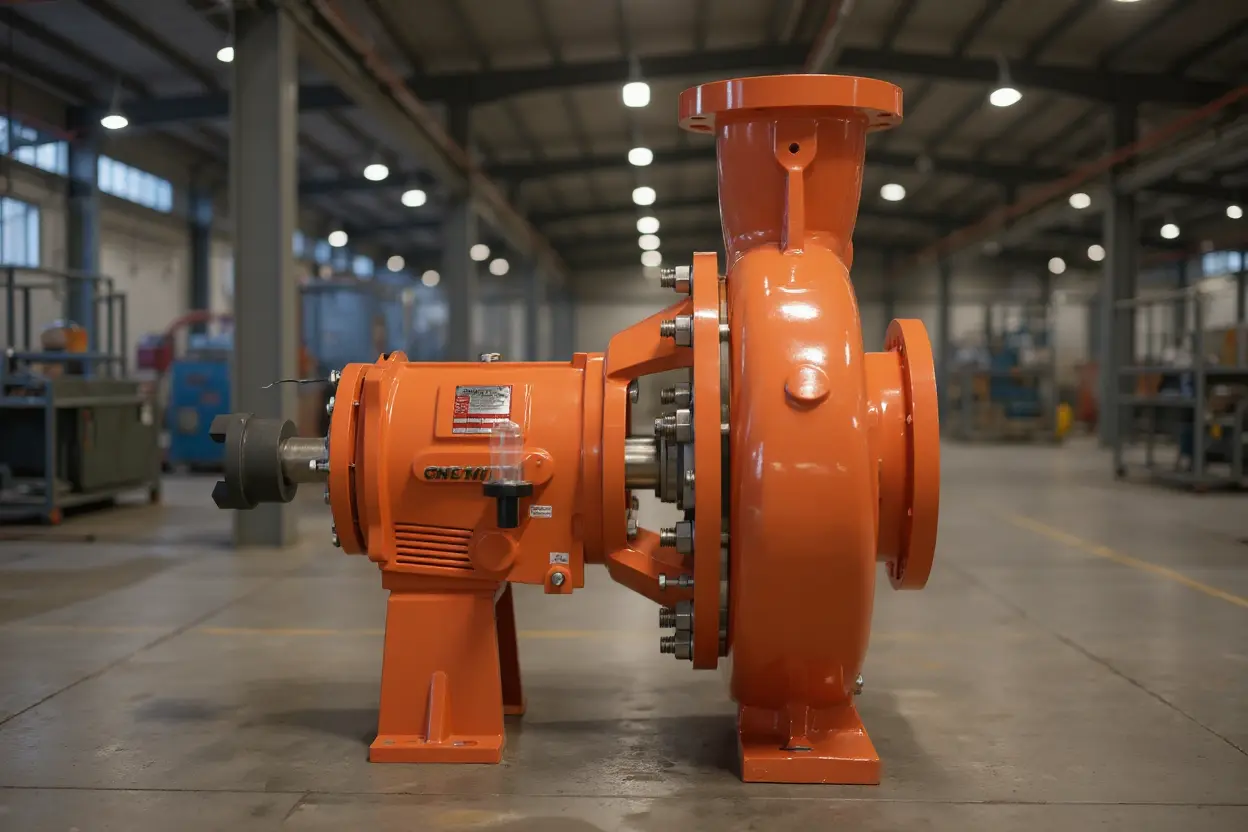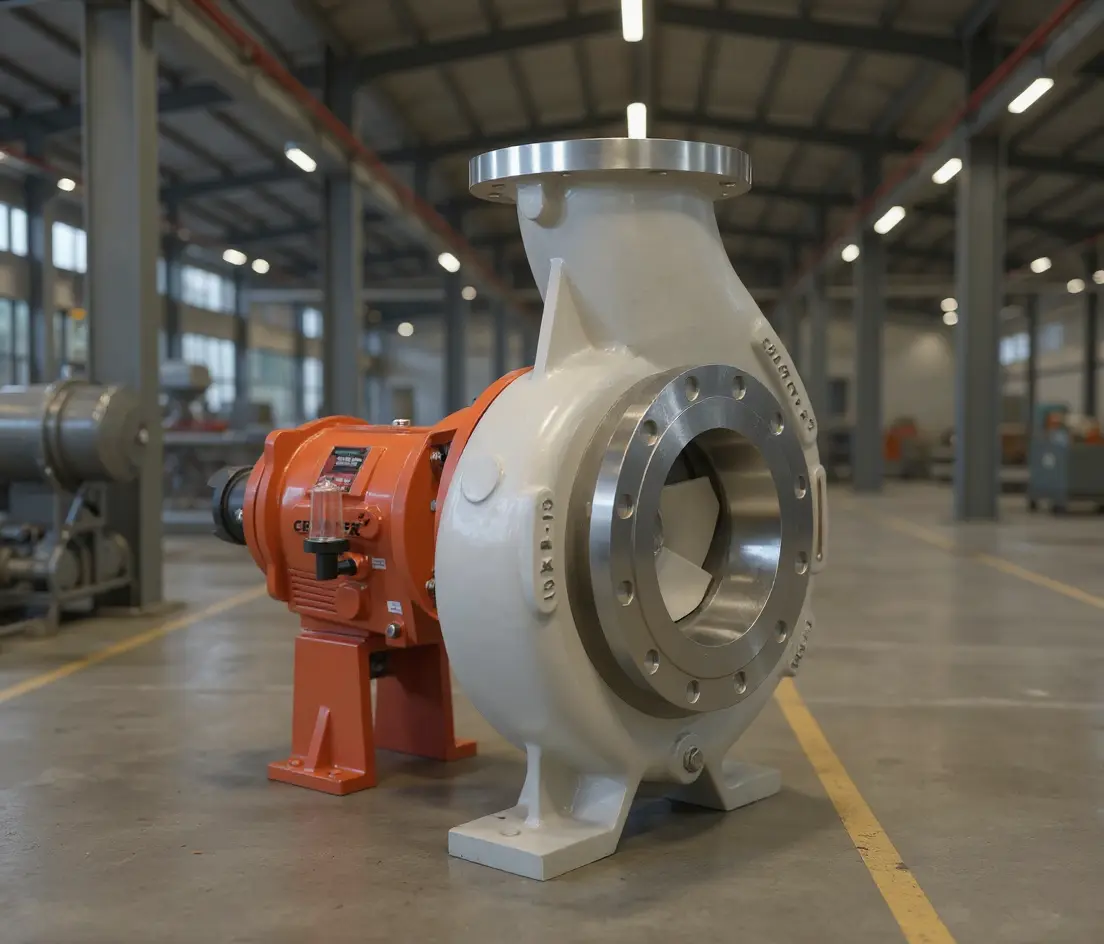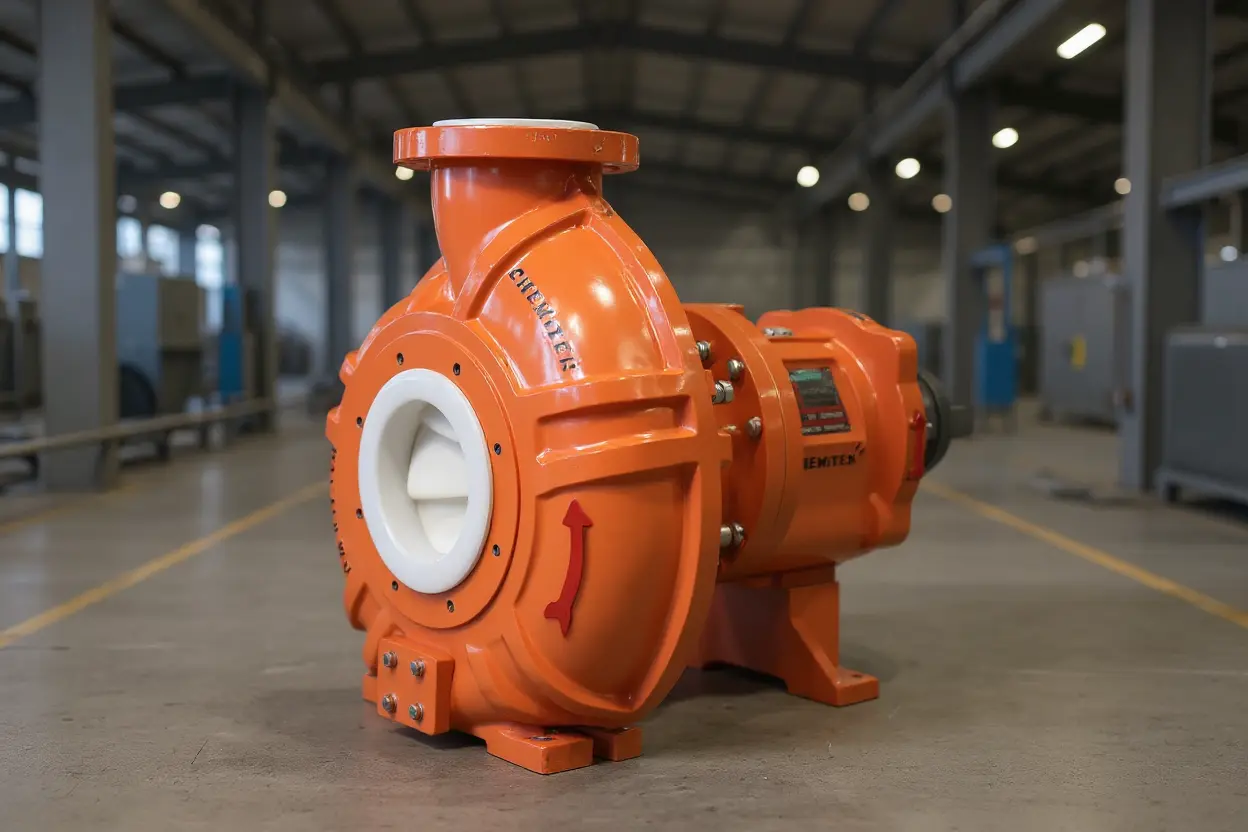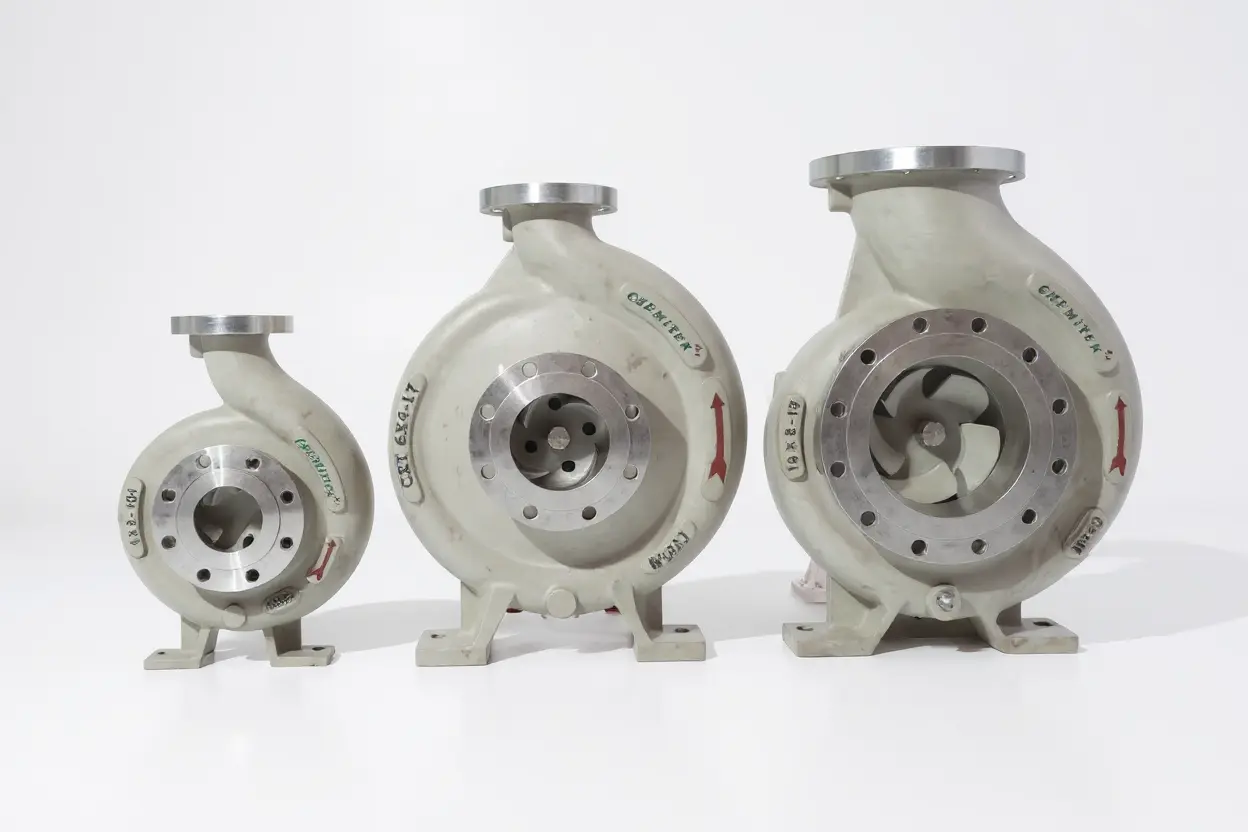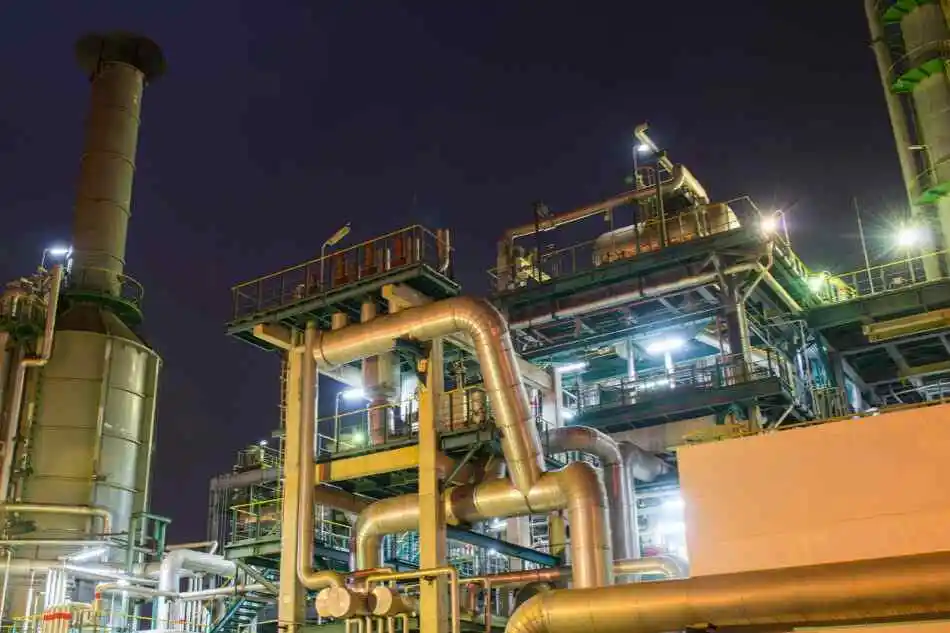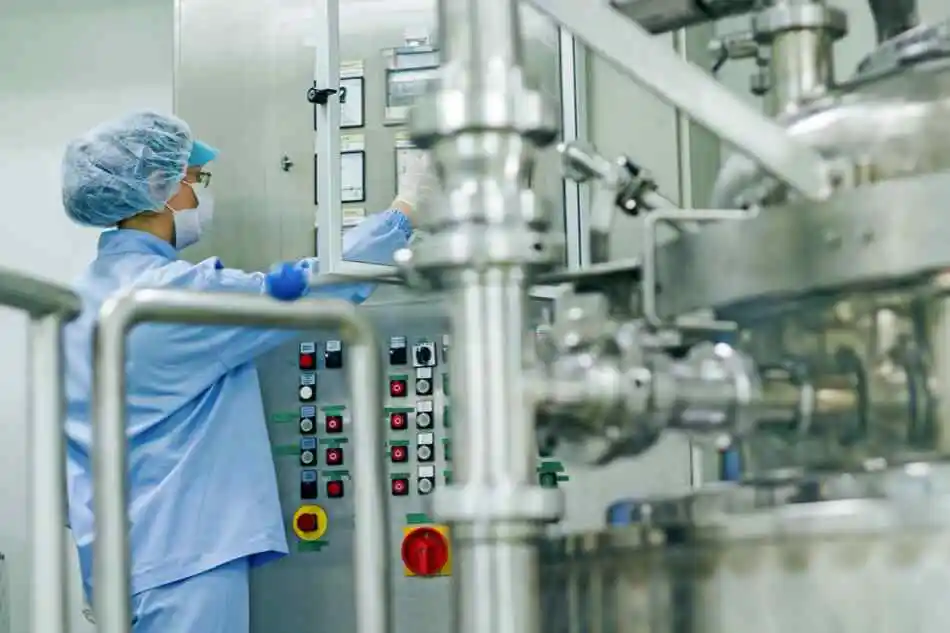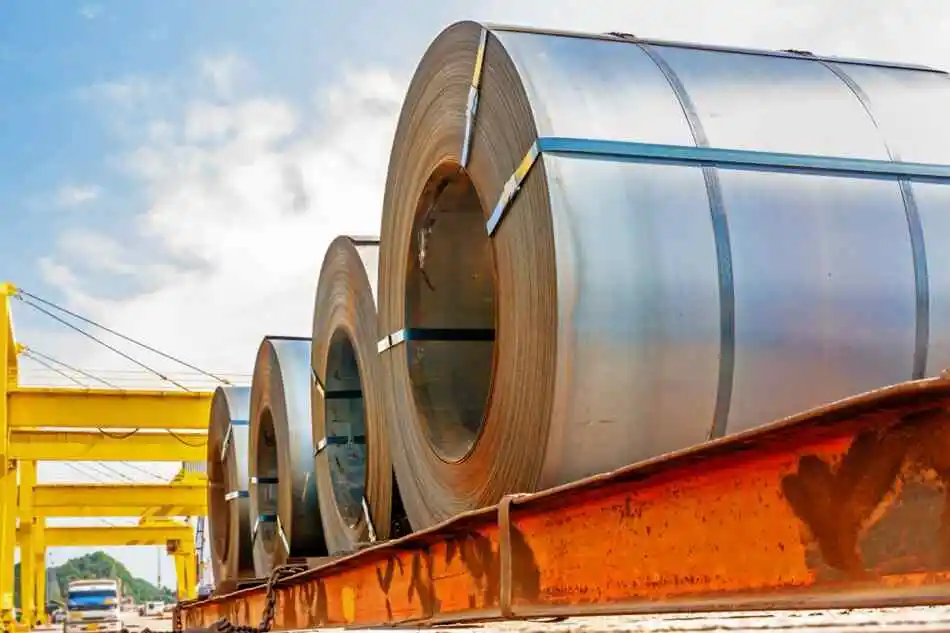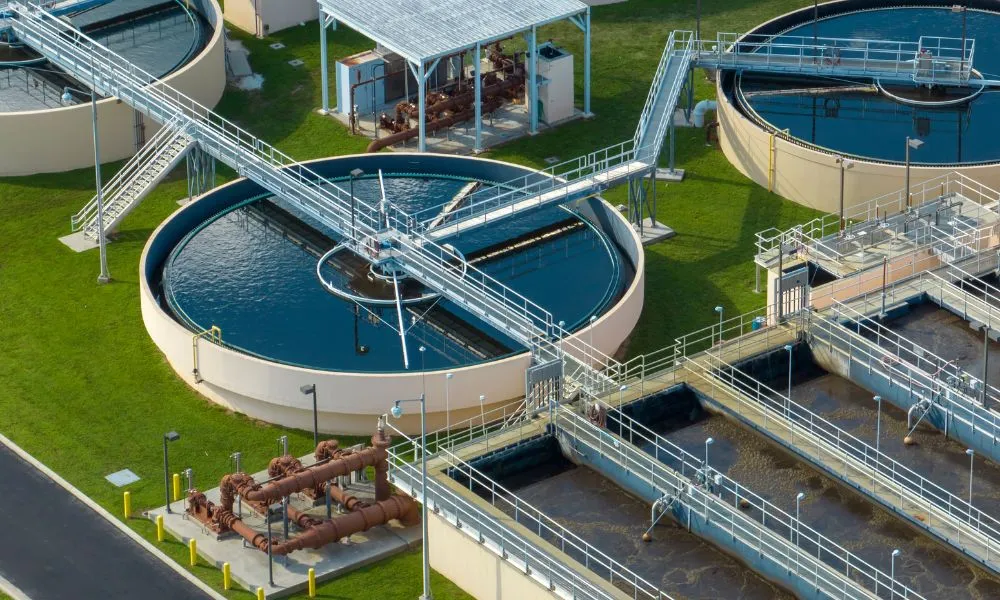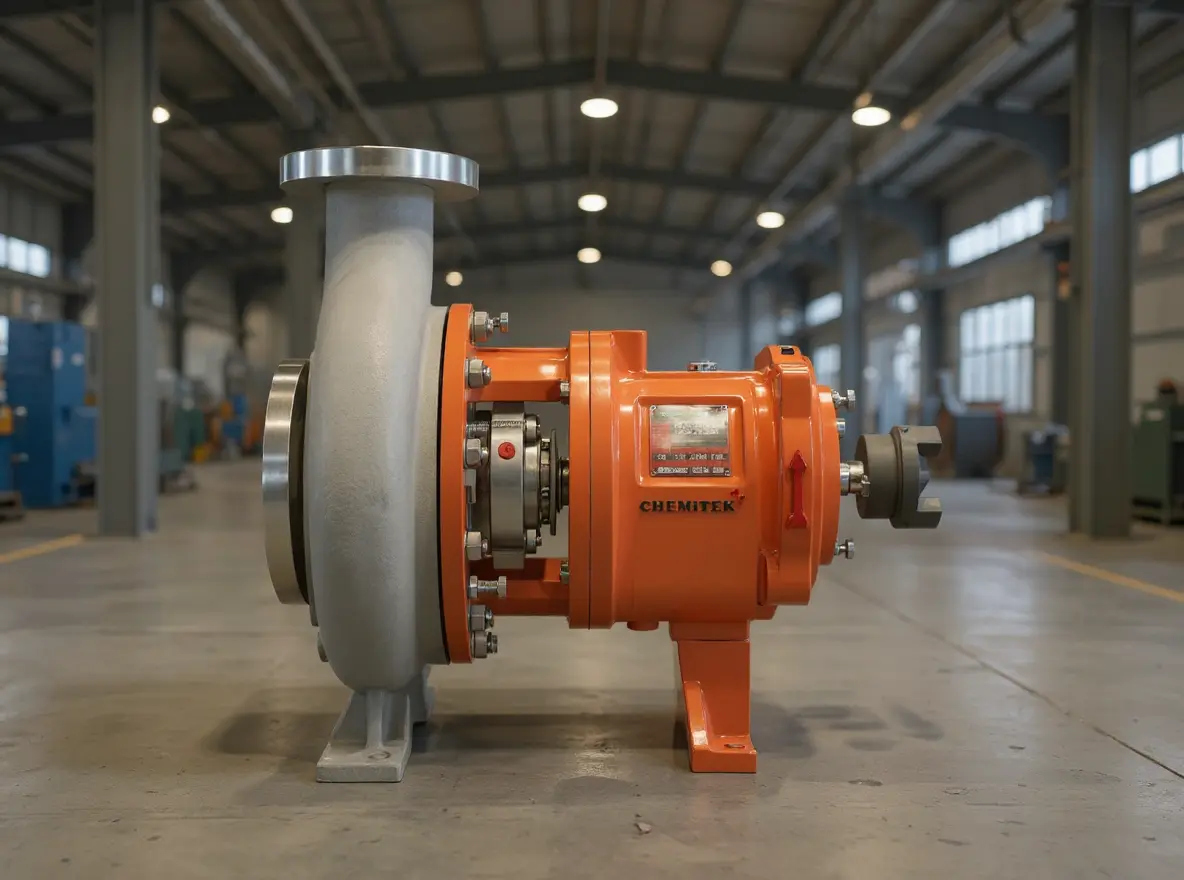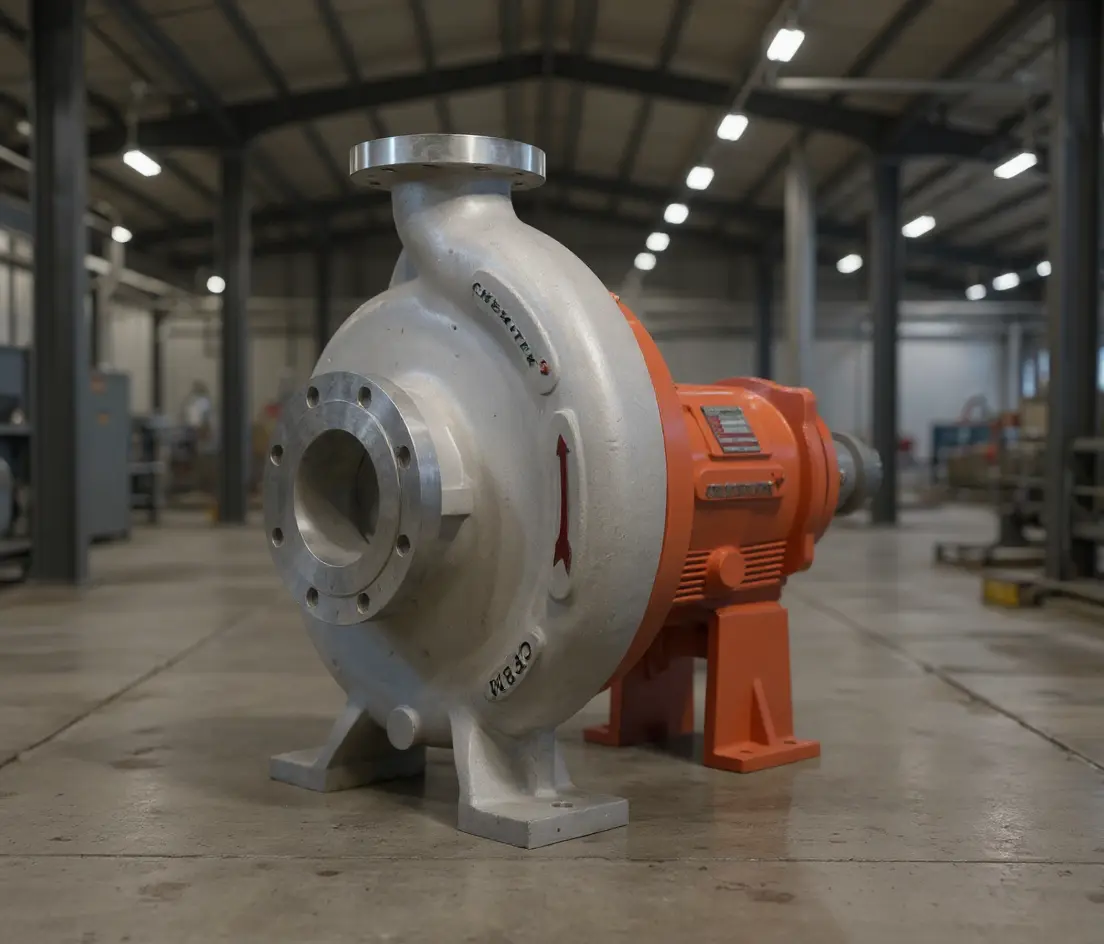What Sets Stainless Steel Centrifugal Pumps Apart?
A stainless steel centrifugal pump is not just another variation of a standard pump; it represents a significant step up from conventional cast iron or bronze designs. While cast iron may suffice for general water circulation, and bronze pumps resist mild corrosion, neither can match the performance, safety, and hygiene of a stainless steel body centrifugal pump.
What sets stainless steel apart is its ability to resist pitting, rust, and stress cracking under aggressive duty. This makes it the preferred choice for operators seeking a durable stainless steel centrifugal pump that can handle corrosive chemicals, high chloride content, or elevated temperatures without losing efficiency.
Superior Hygiene & Compliance
In food, beverage, and pharmaceutical processes, the smooth, non-porous surfaces of stainless steel industrial centrifugal pumps prevent bacterial growth and withstand repeated cleaning cycles. These attributes make them indispensable in CIP (clean-in-place) systems and solvent transfer under GMP and ISO compliance.
Pump Types & Configurations in Stainless Steel Systems
Centrifugal stainless steel pumps are not all built the same; their hydraulic design and configuration determine how they perform in service. Understanding these differences is crucial for selecting the right pump for your application.
Radial Flow Designs
Chosen when high head at low flow is required, such as in boiler feed or pressure-sensitive applications. Excellent for systems requiring significant pressure boost.
Axial Flow Pumps
Handle very high flow rates at low head, often used in cooling water circuits or flood control applications where volume is more important than pressure.
Mixed-Flow Pumps
Provide a balance, delivering moderate head and flow for versatile industrial use, combining benefits of both radial and axial designs.
Horizontal Centrifugal Pumps
Most common in chemical and water transfer plants, valued for ease of maintenance and adaptability to large volumes with straightforward installation.
Vertical Layouts
Save floor space and are favored in confined environments such as sumps or deep tanks, providing the same performance in a smaller footprint.
Engineering Standards & Material Selection
What sets a reliable stainless steel centrifugal pump apart is not just its configuration but the engineering discipline behind it. Material selection and manufacturing standards are critical for ensuring long-term performance and compliance.
304 Stainless Steel
Standard choice for general corrosion resistance in mild chemical environments. Cost-effective for many industrial applications.
316L Stainless Steel
Enhanced protection where chlorides, acids, or pharmaceuticals demand superior corrosion resistance. Industry standard for food and pharma.
Duplex & Super Duplex Steels
For aggressive or high-pressure duties, providing mechanical strength and corrosion resistance that standard grades cannot match.
Critical Standards & Certifications
Pumps built to ANSI/ASME B73.1 ensure dimensional interchangeability and hydraulic stability across chemical plants, while ISO-certified manufacturing reinforces quality control. In regulated sectors such as food and pharma, compliance with GMP standards is critical to avoid contamination and meet audit requirements.
Customized Design Options
The configuration of a stainless steel centrifugal pump goes beyond horizontal or vertical layouts; its design and material logic define how well it withstands service conditions over years of operation.
Single vs. Multi-Stage Designs
A single-stage centrifugal stainless steel pump is often enough for routine chemical transfer or water circulation. But when systems demand higher discharge pressures, such as boiler feed, desalination, or multi-story distribution, multi-stage stainless steel centrifugal pumps deliver the required head without compromising efficiency.
Impeller Variants for Optimal Performance
Impeller choice further refines performance. A stainless steel centrifugal pump impeller with a closed design maximizes efficiency in clean liquid duties, while open or semi-open stainless steel impeller centrifugal pumps are selected where fibers or abrasives are present. Precision-cast components guarantee tighter tolerances and longer service life, especially in high-pressure or compliance-driven applications.
Industry Applications for Safety and Compliance
The true test of a stainless steel centrifugal pump is not just how it moves liquid, but how well it aligns with industry-specific compliance demands. Across sectors, reliability is measured by uptime, safety, and adherence to regulatory standards.
Food & Beverage
Pumps must handle caustic cleaning agents and resist bacterial growth during daily CIP cycles, supporting FDA and HACCP hygiene standards while withstanding high-temperature sterilization.
Pharmaceuticals & Biotechnology
GMP compliance is non-negotiable. Sealed housings and precision-cast impellers eliminate contamination risks when handling solvents, APIs, or sterile water.
Chemical Processing
Constant exposure to acids, alkalis, and solvents at elevated temperatures requires 316L or duplex steels for long-term resistance to pitting and stress corrosion.
Water & Wastewater
Municipal systems demand corrosion resistance to chlorinated water and stability under variable flow conditions while maintaining environmental compliance.
Export-Ready Solutions for Global Industries
The market for stainless steel centrifugal pumps extends far beyond local supply, and sourcing decisions can directly influence both lifecycle cost and system reliability. For routine industrial duties, regional distributors provide fast availability, while complex or corrosive services require engineered builds from specialized manufacturers.
Global Standards Compliance
Export-ready pumps must meet not only performance expectations but also global standards for safety, hygiene, and interchangeability. OEMs and global buyers increasingly look to proven manufacturers that can deliver ISO-certified, audit-compliant builds backed by documentation and long-term spares support.
Ensuring Long-Term Reliability
For stainless steel centrifugal pumps, lifecycle value is measured by how well they maintain corrosion resistance, hygiene, and hydraulic stability under continuous duty. Unlike cast iron or bronze units, stainless steel builds prevent pitting and bacterial growth during years of service, even under chloride-rich or high-temperature conditions.
In chemical processing, duplex and 316L stainless steel centrifugal pumps protect uptime by resisting stress corrosion cracking. In food and beverage operations, smooth, non-porous surfaces ensure CIP cleaning cycles leave no residues behind, reducing contamination risks. For pharmaceutical plants, precision-cast stainless steel centrifugal pump impellers deliver sterile, consistent flow under GMP compliance.
By choosing high-quality stainless steel centrifugal water pumps and industrial centrifugal systems, operators secure more than flow performance—they safeguard hygiene, compliance, and operating continuity. This results in fewer shutdowns, predictable maintenance intervals, and reliable performance across chemical, food, pharmaceutical, and municipal applications.
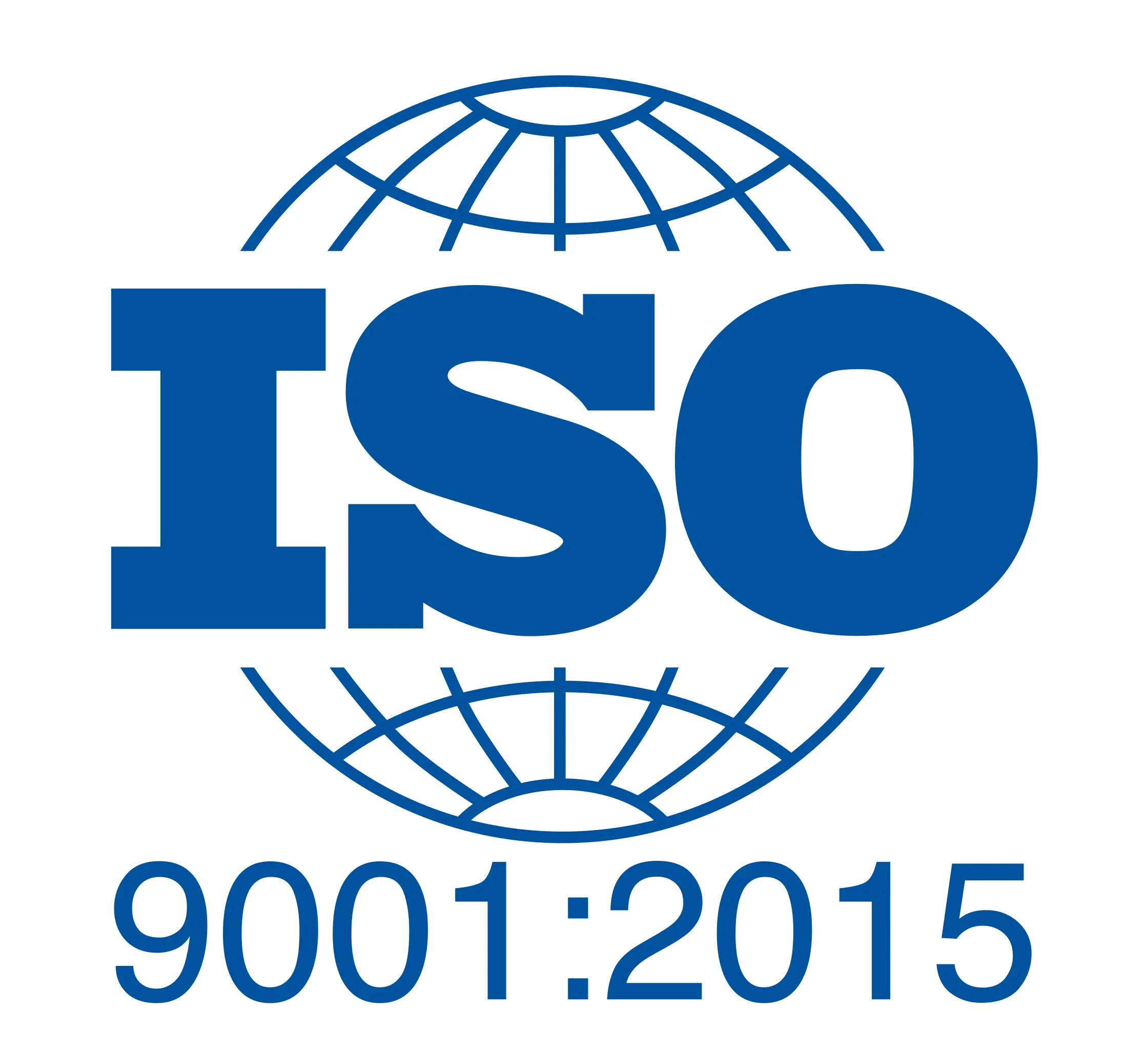 ISO 9001:2015 certified
ISO 9001:2015 certified
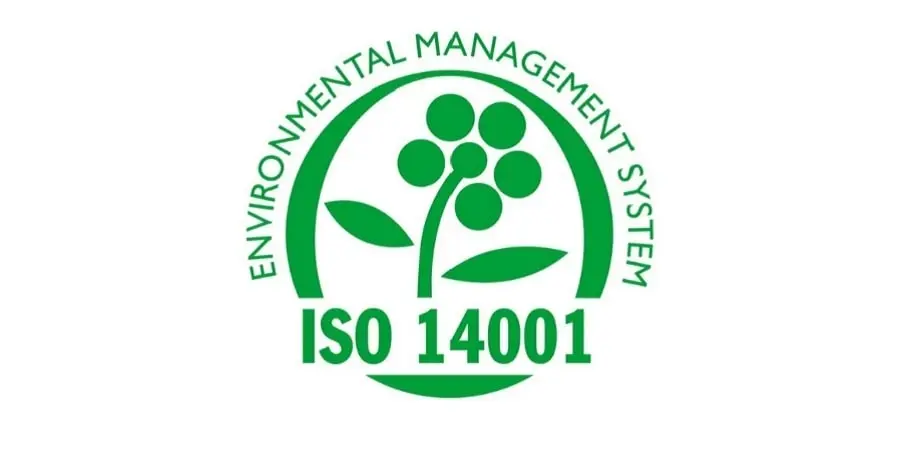 ISO 14001:2015 certified
ISO 14001:2015 certified
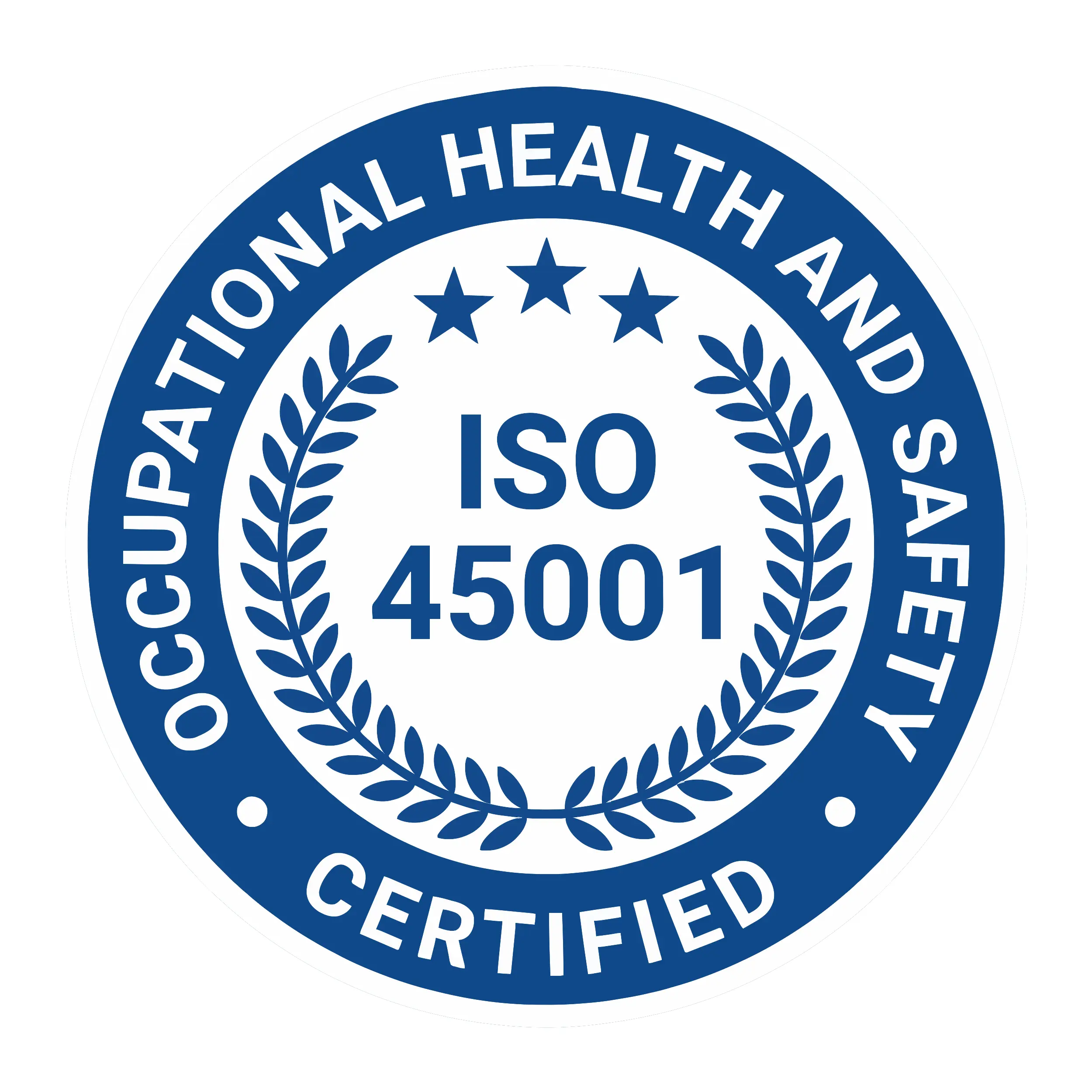 ISO 45001:2018 certified
ISO 45001:2018 certified
